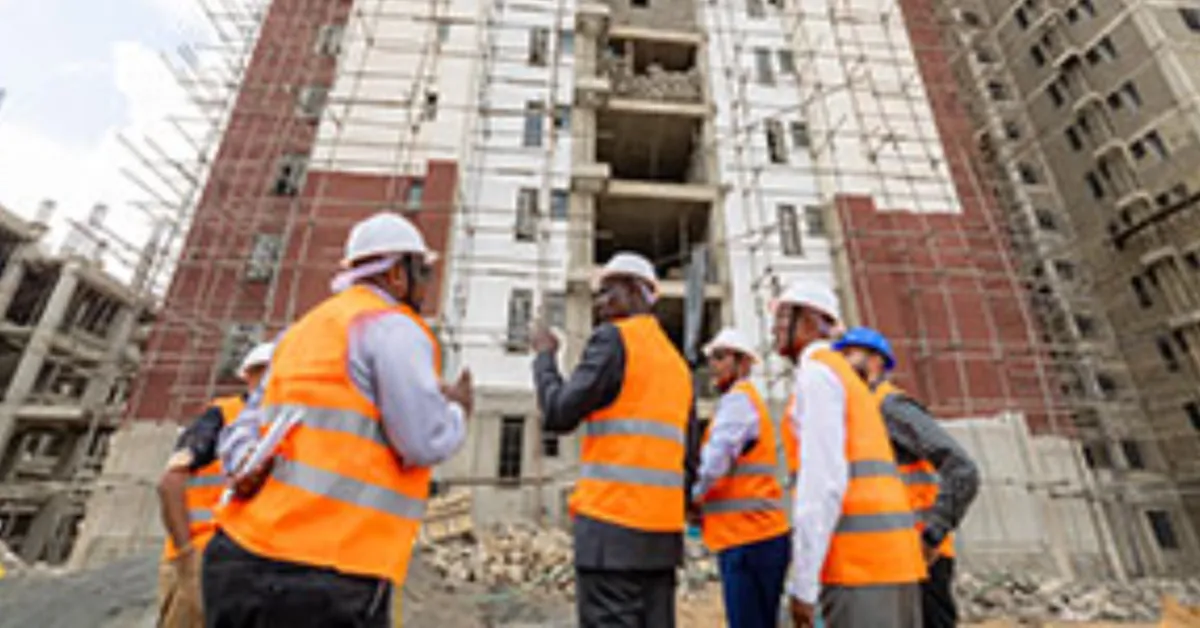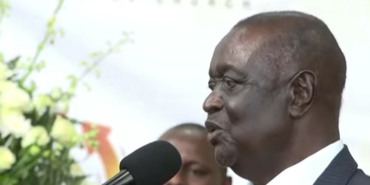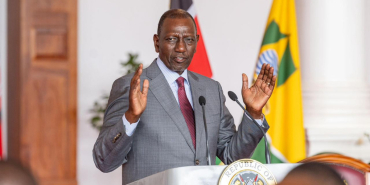State Proposes Using Housing Levy to Build Schools, Markets Across Kenya

The Kenyan government's proposal to broaden the use of the Affordable Housing Levy is generating significant debate, with stakeholders expressing concerns over potential diversions of funds intended for affordable housing projects.
The move comes on the heels of President William Ruto's announcement of sweeping reforms to the levy, raising questions about the initiative's integrity and long-term viability. President Ruto, during his Madaraka Day speech, outlined plans to amend the law governing the levy to facilitate access to affordable home loans for contributors. The proposals included offering loans of up to Sh5 million at single-digit interest rates, enabling participants to purchase homes in the open market.
However, a draft of new regulations currently under review by Attorney-General Dorcas Oduor reveals a cap of Sh4 million on these loans, a detail that has already raised concerns. Further scrutiny of the proposed regulations indicates that the government intends to expand the fund's scope to finance a wide range of public projects beyond housing, including health facilities, educational infrastructure, police stations, markets, and solid waste management systems.
This development has triggered alarm among labor leaders and economic analysts, who argue that repurposing contributions originally intended for housing could erode trust in the program and undermine its primary objective. Under the draft regulations, contributors would have the opportunity to apply for loans dedicated to constructing rural affordable housing, provided they have made voluntary savings and have yet to be allocated a housing unit.
The proposed framework outlines tiered interest rates, with lower-income earners paying just 3 percent annually on a reducing balance, middle-income earners paying 6 percent, and higher earners facing a 9 percent interest rate. While the loan provision aims to expand financial accessibility, the government's decision to widen the fund's application has sparked concerns over accountability.
The draft allows financing for various public infrastructure projects that extend beyond housing, including classrooms, fire stations, public halls, and drainage systems. This shift has placed the Central Organisation of Trade Unions (Cotu) at odds with policymakers, as union leaders claim the amendments violate the original intent of the levy.
Cotu Secretary-General Francis Atwoli has been at the forefront of opposing the proposed alterations, arguing that the regulations create potential loopholes for misappropriation. He fears that legislators could exploit the broadened mandate to channel funds toward projects that do not directly benefit workers contributing to the levy.
Atwoli maintains that Cotu initially supported the Affordable Housing Programme in good faith, expecting contributors, primarily workers, to receive tangible benefits in the form of decent, accessible housing. However, he asserts that the latest regulatory proposals veer off course, threatening to dilute the levy's original purpose.
"It must be noted that Cotu supported the Affordable Housing Programme with the expectation that our members, who bear the financial burden of this levy, would directly benefit through access to dignified, affordable housing," Atwoli said in a statement. "At no point were Kenyan workers consulted during the drafting of these regulations."
The union has called for an immediate halt to the legislative process, demanding extensive public participation and a redraft of the provisions to ensure the fund remains aligned with its foundational goal. Cotu has urged President Ruto to intervene, insisting that workers' rights must be safeguarded against potential manipulation of contributions.
Despite the controversy, President Ruto has defended the move, arguing that repurposing the levy to finance additional projects aligns with broader national development goals. Speaking at a recent public address, he revealed that the fund is already being used for market construction, some of which were initiated during former President Mwai Kibaki's administration.
"We are not only using the housing levy to build affordable housing, we are also using it to develop markets," he said, pointing to 260 ongoing market projects and plans for college hostels.
According to Ruto, repurposing the fund ensures that various sectors of society, including informal traders and students, benefit from the initiative. The draft regulations further propose that the affordable housing board may enter into financing agreements with various entities, including retirement benefit schemes and banking institutions, to facilitate home purchases.














Add new comment